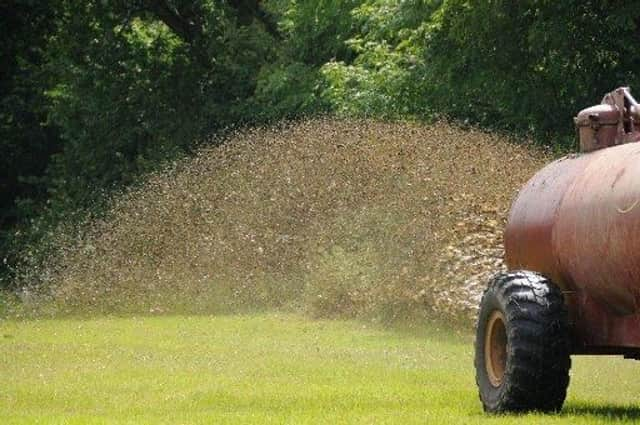Swann hits out at refusal to extend slurry spreading deadline


Mr Swann, who is also the party’s agriculture spokesman, wrote to the DAERA Permanent Secretary on the 21 September asking for the approaching slurry deadline to be extended.
In the weeks since then the weather has continued to play havoc with farm work, with periods of heavy rain giving the ground conditions little chance of improving.
Advertisement
Advertisement
Mr Swann said: “Many farmers across Northern Ireland are in an incredibly difficult and precarious situation. A very large number, especially in Counties Tyrone, Fermanagh and Londonderry, still have much of their second cut of grass to lift and now they are facing the prospect of having to rush and spread slurry on ground that simply isn’t in a condition to take heavy machinery.
“During the week I received a response from the DAERA Permanent Secretary and he has effectively told me there is nothing that can be done.
“In his reply he did acknowledge that the challenges faced by some farmers over recent months, as a result of high rainfall have been exceptional. The rainfall data, obtained by his officials in the Northern Ireland Environment Agency (NIEA), from the Meteorological Office would indicate that rainfall for Northern Ireland for June, July and August 2017 was above the long term expected average. Most people didn’t need to wait for the statistics however, it was already obvious.
“I don’t accept that nothing can be done, and that we have simply no choice but to wait for the October 15 deadline to hit. No one can control the weather, but we can control government policy.
Advertisement
Advertisement
“I understand that the Department is bound by the Nitrates Directive and the related 2014 regulations, and that strictly speaking at present there may be no provision to extend the deadline, but that doesn’t mean there couldn’t have been one made. The European Commission should have been contacted by now to be told just how critical the situation is for our farmers and asked for an emergency suspension of the regulations, however I believe that hasn’t happened. The ongoing absence of an Executive at Stormont has also undoubtedly weakened the pressure that could have been applied.
“As per previous years individual farmers will be allowed to spread beyond October 15 under ‘exceptional circumstances’. In reality this is a significant administrative burden for both the farmer and the Department. The Department has already told me that individual cases will clearly need to be evidence based on a case by case basis showing that the farmer had taken all reasonable steps to manage the situation and was left with no alternative as a result of the adverse weather conditions. Individual farm visits will also be necessary.
“The Department could save itself an awful lot of time and effort by recognising the blatantly obvious at this stage – ground conditions just aren’t good enough in many areas to get slurry spread.
“This is not just a problem for a farmer here or there – it’s a problem for thousands. I fear the Department is going to be overcome with requests to spread slurry beyond the deadline and that right now it doesn’t have the preparations in place to handle it.”
Advertisement
Advertisement
Mr Swann added: “I am growing increasingly tired of the dogma of farming by calendar – it just doesn’t work.”
A spokesman for the Department of Agriculture, Environment and Rural Affairs confirmed their position on the matter.
A DAERA spokesman said: “The closed spreading period for organic manures comes into force at midnight on 15 October 2017 and runs until midnight on the 31 January 2018, and is a mandatory requirement of the Nitrates Directive. There is no legal provision within the Nitrates Action Programme (NAP) Regulations (Northern Ireland) 2014 for the Department to grant a waiver.
“However, under exceptional circumstances, beyond the control of and not foreseeable by an individual farmer, a defence may be made for non-compliance with some of the requirements of the NAP Regulations, including spreading organic manures during the closed period. Such cases would be considered by the NIEA on a case by case basis and must be clearly evidence based showing that the farmer had taken all reasonable steps to manage the situation and was left with no alternative as a result of the adverse weather conditions.”